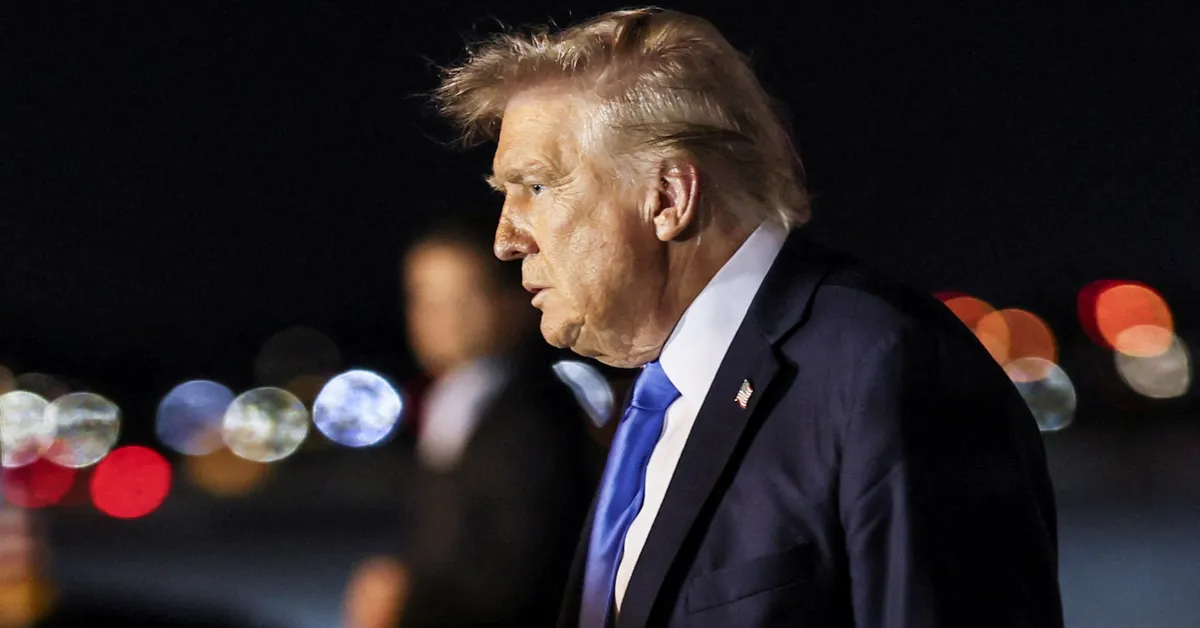
In a recent interview, President Donald Trump expressed uncertainty over whether individuals in the United States are entitled to the due process rights guaranteed by the U.S. Constitution. This statement comes as his administration intensifies efforts to deport immigrants who are in the country illegally, as well as other non-citizens. The interview was conducted on Friday and is scheduled to air on Sunday on NBC’s Meet the Press with Kristen Welker.
During the interview, Welker posed a critical question regarding Trump's stance on due process, referencing comments made by Secretary of State Marco Rubio. Rubio had asserted last month that all individuals in the U.S. are entitled to due process, which typically requires the government to provide notice and a hearing before implementing adverse legal actions. Trump responded, “I don't know. I'm not, I’m not a lawyer. I don't know,” indicating his lack of confidence in the legal implications of due process. He further argued that adhering to such requirements could lead to an overwhelming number of trials, suggesting a potential backlog of “a million or 2 million or 3 million trials.”
Trump's administration has recently encountered legal challenges regarding its immigration policies. On April 19, the Supreme Court temporarily barred the administration from deporting a group of Venezuelan migrants, whom it accused of being gang members. The administration is urging the justices to either lift or narrow this order, invoking a rarely used wartime law to expedite deportations. U.S. Solicitor General D. John Sauer stated in a Supreme Court filing that detainees are receiving advance notice of their removals and have had sufficient time to file claims for judicial review.
Additionally, the Supreme Court directed Trump's administration on April 10 to facilitate the return of a Salvadoran man, Kilmar Abrego Garcia, who was acknowledged to have been deported in error. Garcia is currently being held in a detention center in El Salvador. A federal judge overseeing the case has mandated that the administration provide further details on the measures taken to ensure Garcia's return to the United States.
In a separate part of the NBC interview, Trump addressed speculation about his political future, stating that pursuing a third presidential term is “not something I'm looking to do.” He referenced the Constitution's 22nd Amendment, which stipulates that “No person shall be elected to the office of the President more than twice.” Despite his claims, Trump has occasionally hinted at a desire to run for a third term, leaving the door open for interpretation among his supporters.
As the debate over immigration policy and due process rights continues, Trump's remarks highlight the complexities and legal ramifications surrounding these critical issues in American governance.